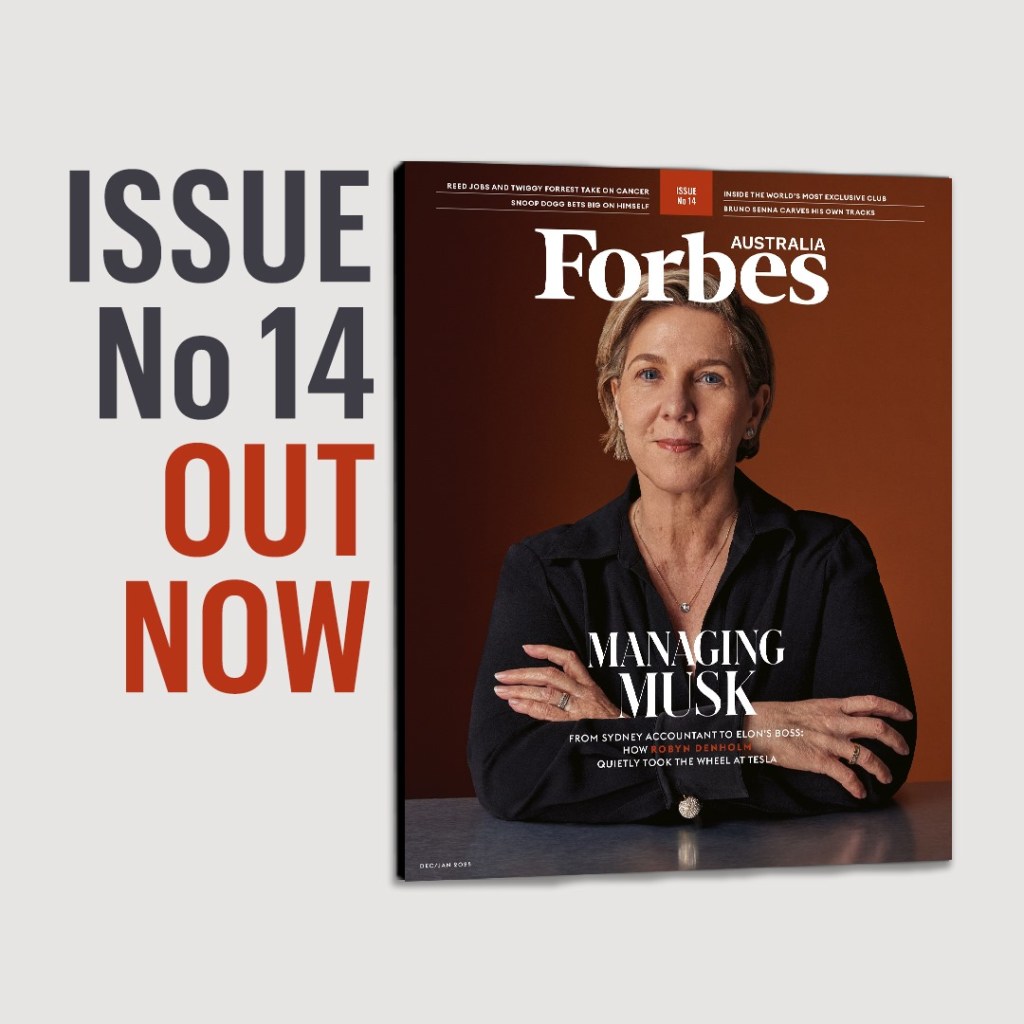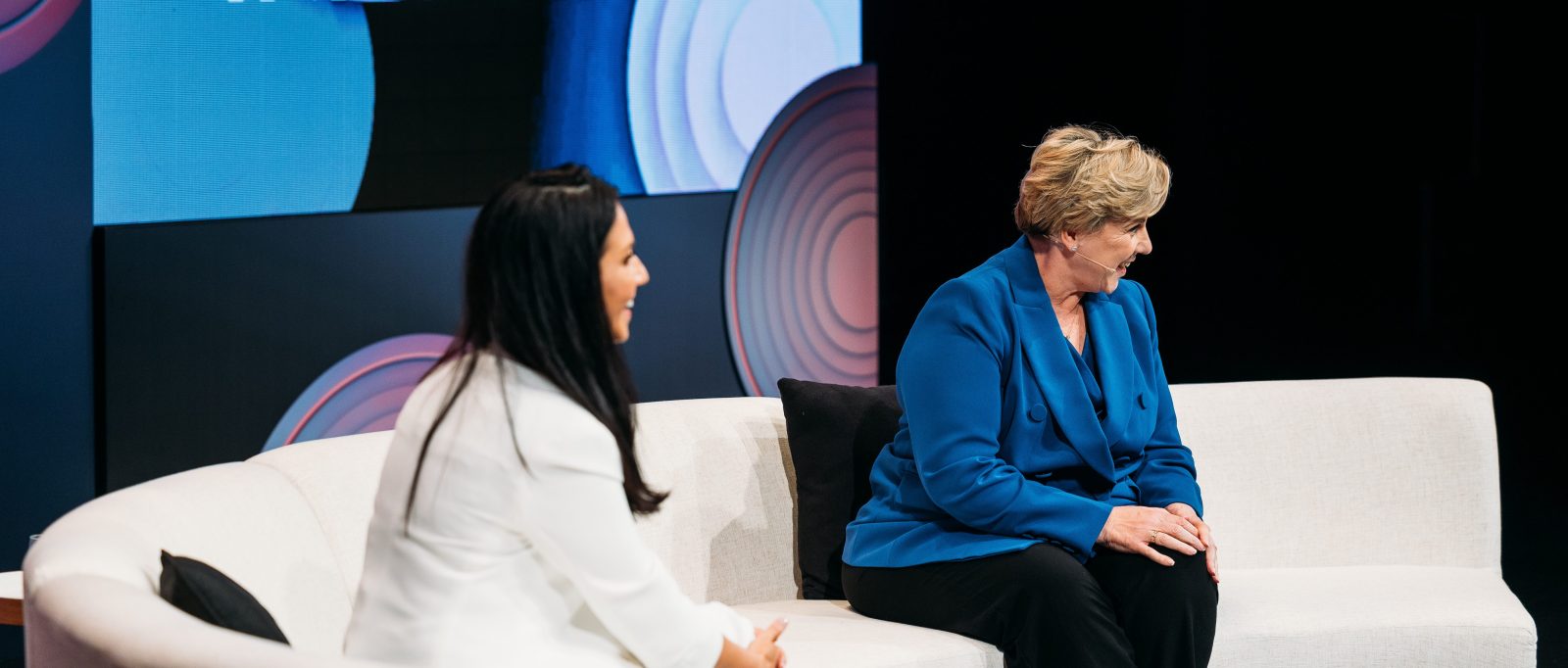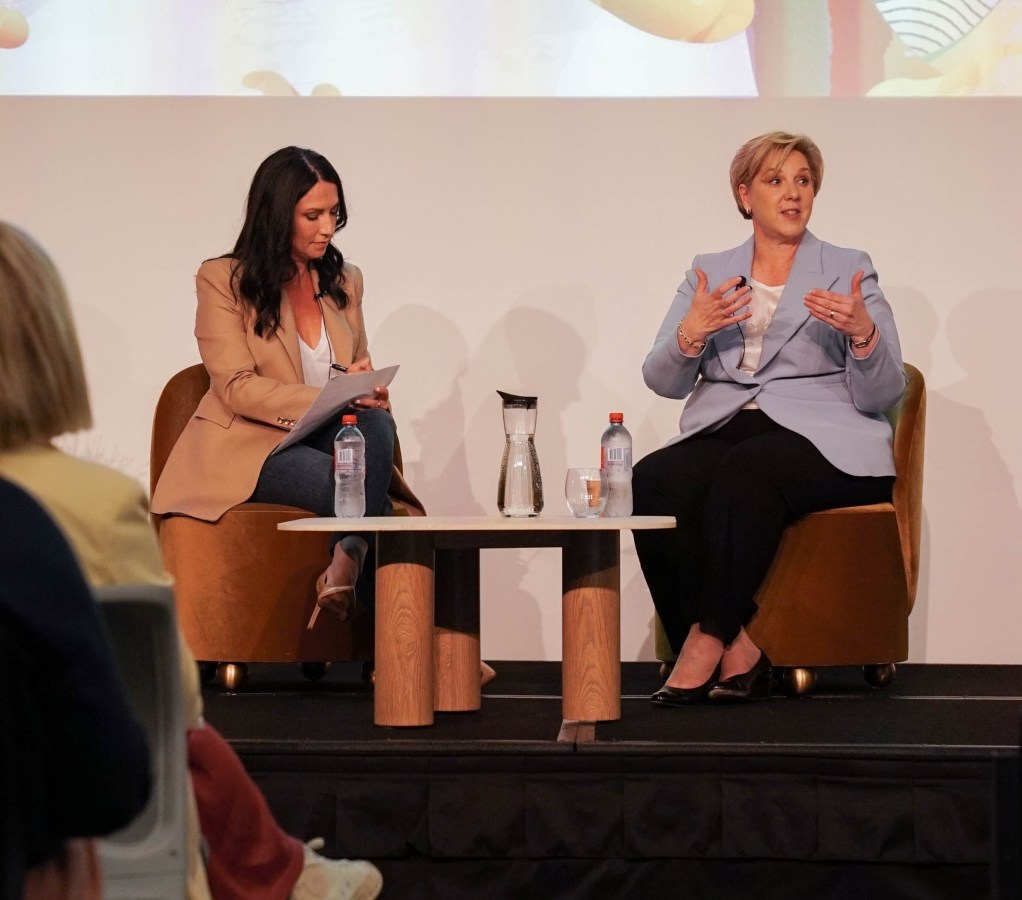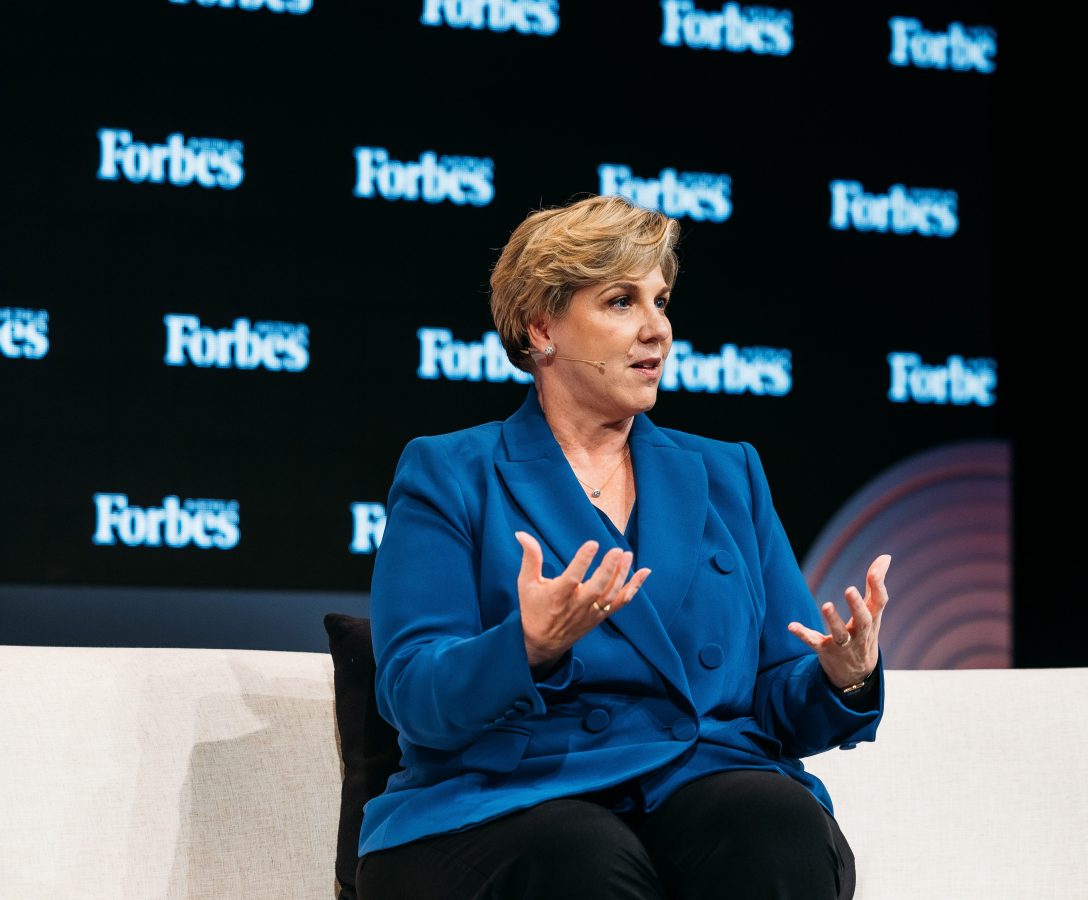As Tesla’s chair, Robyn Denholm oversees one of the world’s most impactful companies and its larger-than-life CEO. But what does it mean to ‘manage’ Elon Musk? This is the story of how an accountant from Sydney’s West rose to the top.
This story featured on the cover of Issue 14 of Forbes Australia, out Monday. Tap here to secure your copy.

Victoria Denholm recalls her mother, Robyn, saying that they might be in a position to start a family office. It came as a surprise to Victoria. She always knew mum was successful, “but like, you know, never really had the gravity of how successful”.
She wasn’t alone in underestimating Robyn Denholm, who had leapfrogged from soccer mum/swimming mum/basketball mum to chair of one of the most consequential companies in the world, Tesla, and as such, being the boss of one of its most consequential individuals, Elon Musk. And here Denholm was, during the first year of the COVID-19 pandemic, announcing to her children, Victoria and Matt, that they had this “opportunity”. They were going to the next level.
Denholm was in the process of making US$280 million ($426 million) from the sale of Tesla options in 2021 and 2022. On top of this, she owned more Tesla stock, making her, during Tesla’s Nasdaq zenith in November 2021, an Australian-dollar billionaire. It was, she would tell a Delaware court, “life-changing”.
That court was critical of her and her role in approving a US$56 billion pay package for Musk: that she was beholden to Musk and would do as she was told, even though she had been put into the role of chair specifically to rein him in. Such suggestions anger her. She points out that the wealth has made her independent of him.
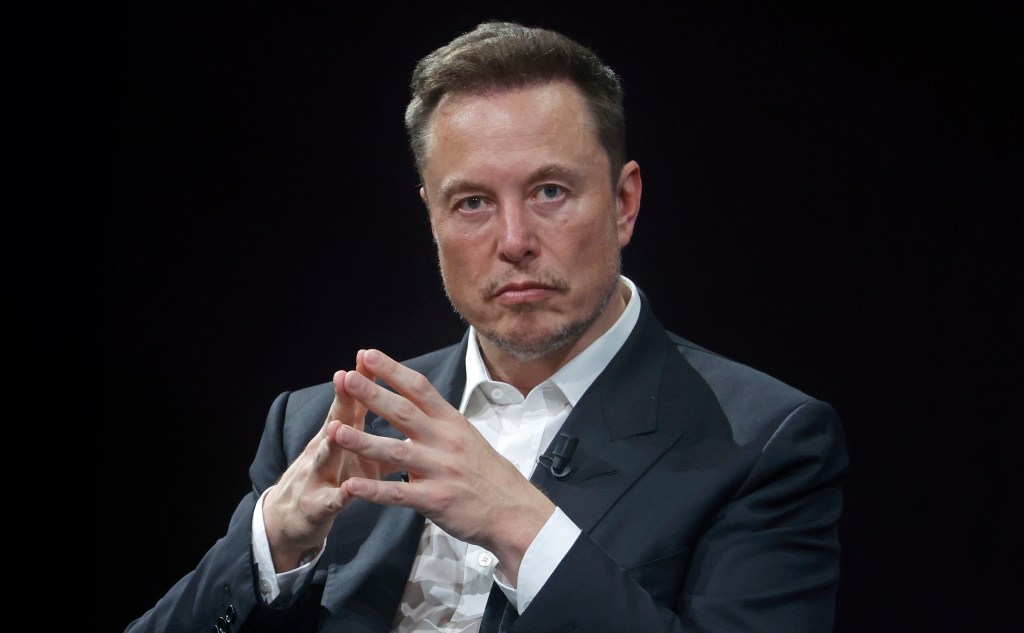
The money is already in the bag.
It’s an extraordinary position for an accountant whose formative impressions of business were formed washing oil bottles, cleaning windscreens and “pumping gas” at a full-service petrol station in Milperra, south-west Sydney, where her Maltese-Scottish parents who’d migrated from Libya were working their way into the middle class, one tank at a time.
And here she was, trying to figure out with her kids what they stood for; where this life-changing wealth would take them.
From servo to the boardroom
While Denholm is often styled as a girl from the Western Suburbs of Sydney, the Sammut family had moved from Wiley Park to the comfortable, riverside southern suburb of Lugarno by the time Robyn went to high school at Peakhurst High. She worked at the petrol station in her spare time. “I’m very good at cleaning windscreens,” she says as a makeup artist dabs her face, preparing for the Forbes Australia cover shoot.
The biggest lesson was how much her Dad valued customers. “He could be as cranky as anything, but a customer would come on the driveway, and he’d be all smiles … that stood him and the business in good stead. Things always go wrong, but it’s putting customers front and centre that is important.”

Dinner conversation was often around business. “I remember during the… Sorry, it’s very hard to talk with someone poking you in the face … when the gas prices, petrol prices, went through the roof and there were shortages and queues for petrol and how difficult that was for the business.”
She enjoyed science but was encouraged into economics at the University of Sydney by a more enthusiastic teacher. She wasn’t the best student, she says, but worked hard and “learnt how to learn”. Out of uni, IBM offered her a job, but she took one at the accountancy firm Arthur Andersen, in the era of mainframes and typing pools, because she thought it would be better training. In 1989, a recruiter called about a job at Toyota, “and given my background and the fact that I like cars, I took it”.
She moved around within the car-maker and ended up in Melbourne. Toyota was thinking about building the first car factory in Australia since the 60s in a joint venture with General Motors. “That was fascinating, working through the business case to build a new plant and what needed to be true and then doing all the finance work associated with building it.”
She says she stopped mapping her career in terms of five-year plans and started looking at it as collecting skills. “When my kids were little, particularly Matthew, he loved Pokémon cards. And the most valuable card was the one that you didn’t have. You would do pretty much anything to get that card. From a career-advice perspective, the most valuable skills are the ones that you need to get you to the next level.”
In just seven years at Toyota, she collected a lot of cards and had 400 people reporting to her. They were still faxing all their figures to Japan, but the team was figuring out how to process and store their data. She realised there was a world of computing skills whose Pokémon cards she hadn’t yet collected. People were starting to talk about the internet.
In 1996, Denholm left Toyota to head up a team of just seven for the Australian branch of Sun Microsystems, a hot challenger company building computer servers, but which, during Denholm’s interview process in late 1996, dropped the Java software language on the world.
“We were paving the road as we were driving down the highway in terms of processes and systems and how the compute-and-storage world was going to be changed by what Sun was doing.
“It sounds in hindsight that everything was perfectly planned, and I just executed the plan. That’s not the case.”
Robyn Denholm
Soon, she was setting up Sun’s financial services across Asia, constantly on the road. With each visit to a new, exotic country, Victoria added a doll to her collection. Over time, she amassed a lot of dolls.
In 2001, Denholm had separated from Victoria and Matt’s father when she told the kids they were moving to the U.S. Matt, a basketball fanatic, said he didn’t care where they went as long as the city had an NBA team. They went to Denver, home of the Nuggets. Denholm’s new partner didn’t join them right away, so she was effectively a single mother.
Victoria remembers seeing a lot of small-town Colorado, with Mum driving to some basketball or American football game for Matt. “It’s kind of amazing, like, looking back, the balance that she was able to strike between having two small kids by herself in a foreign country while growing her career.”
The family bonded over basketball, and although the Nuggets were going through a lean patch, they still got to see basketball legends like Shaquille O’Neal and Kobe Bryant when they came to town. Denholm subscribed to Slam magazine and would read it before passing it on to Matt so they’d have something to discuss.
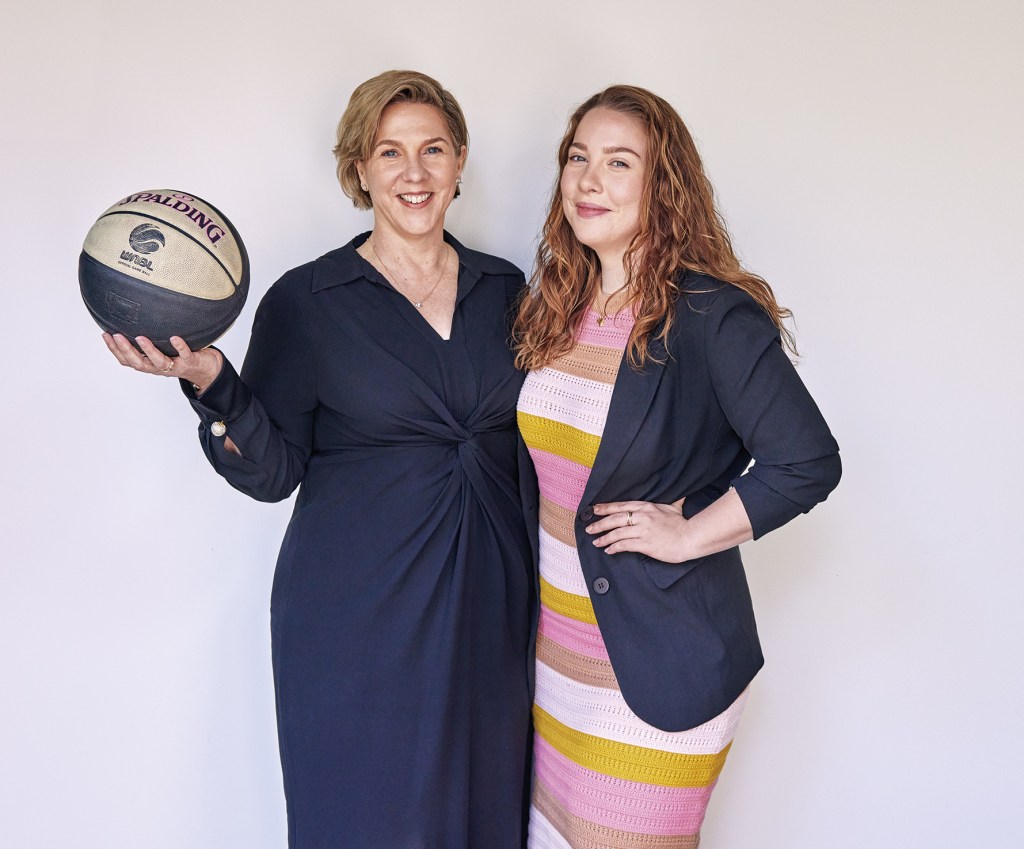
The 9/11 attacks happened just weeks after they arrived in the US, hitting a tech industry still reeling from the dot-com crash 18 months earlier. She’d been through some tough times at Toyota, where mining busts had hit the company hard, but this was her first time at the epicentre of such a crisis.
“I learned that you’ve got to be like a meerkat. You have to have your head above the ground and look at what’s happening in the overall economic environment, not just what’s immediately in front of you.” Another Pokemon card right there.
Sun had formal lines of career development. “They encouraged everybody to ‘own your own career’ and work through what you needed to do.” This approach led her to Colorado and gave her the confidence to share her ambition to become a chief financial officer with her manager.
By 2006, Denholm was number two in finance when the CFO, Steve McGowan, retired. Denholm put her hand up for the job but was passed over when they brought a former CFO, Mike Lehman, out of retirement.
Denholm, furious, went home and bawled her eyes out. She contemplated walking, but the chief operating officer asked her to stay. She expressed her desire for a role outside of finance, and they offered her one in corporate strategy – a new “Pokémon card” to add to her collection.
“I’ll give you two years. I’ll help turn the company around, and then after two years, we’ll talk,” she said.
“It’s one of those sliding door moments that changed the course of my career,” she told the Forbes Australia Women’s Summit in February. “Those scars help you with resilience because the next time it happens, it’s not quite as emotional.”
At the end of the two years, Denholm got her CFO role at Juniper Networks, a company that had invented a new way of network routing that made the volumes of the modern internet possible. They were scaling through a billion dollars of annual revenue. She’d never experienced this growth culture before. Her wardrobe had progressed from compulsory stockings at Andersen to jeans and sneakers.
She had been at Juniper for only a few months when Lehman Brothers collapsed, marking the beginning of the global financial crisis. Juniper’s numbers had been strong, but early indicators in forward bookings signalled they needed to pivot quickly.
“I always call the CFO role a team sport,” says Denholm. “You cannot be on an island as a CFO… I remember I was back here for Christmas, but I was on the phone most of the time, figuring out what we would do for the new year. We devised the strategy to preserve our R&D. It’s an innovative company. We needed to protect the roadmap, or the company might not exist. It was a big call. All the execs took a pay cut. We froze hiring. We minimised job cuts as much as we could. It wasn’t what Wall Street was expecting – the stock price tanked.”
They held town halls to tell the employees what they were doing and why. Profits fell at first. “Then, in the following couple of years, we grew by 30%. The rest of the market only grew in the early teens. And it was because of those R&D investments.
“What that taught me – and I knew this from before, but it was the first time that I was leading it with the exec team – was that during those dislocation moments, you have to communicate, and over-communicate, to all of your stakeholders because fear was rife.”
Hitting the limelight
Victoria knew her mum was doing well. She had a Wikipedia page, after all. But it wasn’t like she was a movie star. Not until they moved to California and Victoria went to a Silicon Valley awards night where Denholm won a CFO-of-the-year prize. “And I thought, ‘Oh, like, my mum’s a big deal, which was kind of cool.”
Denholm was living in the Valley and had been at a few CFO round-tables when, in 2014, one of her fellow round-table participants, Brad Buss, asked her if she’d be interested in joining a board. Things were settling down at Juniper, and she felt she had bandwidth. He didn’t tell her which company at first, but eventually, he let on that it was Tesla. They needed an audit committee chair. The upstart car-maker’s market cap was sitting around US$30 billion.
She had the right mix of Pokemon cards with her background at Toyota and in tech. And she was a car girl. She’d been on the waiting list for one of its EVs for almost a year. After her debut board meeting, she got behind the wheel of a Model S for the first time, with the CEO and chair Elon Musk, who she’d just met, in the passenger seat, driving up and down Deer Creek Road outside headquarters.
“I remember talking to shareholders, and they’d say, ‘Robyn, what are you going to do when he doesn’t hit the goals and he’s demotivated?’”
Robyn Denholm
If Denholm picked up any new skills at Tesla, it was the speed card. “I thought I had been in fast-paced environments at Sun and Juniper, but Tesla’s a step above that. My second board meeting, we went to Nevada, where the first gigafactory was being built, and the speed at which they got that factory up and running was mind-blowing. I’d been part of teams that had built factories before – so three, four, five years. This thing was up and running in 14 months – the factory in China holds the world record for how fast they got that up and running.”
The now Tech Council of Australia CEO Damian Kassabgi says he didn’t understand the size of Denholm’s achievement at Tesla until he saw the scale of what the company was doing. “Mate, she just took me around to the Tesla factory in Austin.” Seeing the Tesla GigaFactory – the second largest building in the world by volume – loom out of the flat, brown Texan plain put her and Tesla in a new light. “It’s one thing to say it, but it’s another thing to go and see the company that she chairs, and it’s another thing to be with her in that company.
“It is a remarkable story for an Australian to have understood and got involved in a company like that before it was as famous or as big or disruptive as it is now.”
Coming home
Denholm had been at Juniper for almost ten years, and with Victoria almost through college in 2016, she felt it was time to come home and take a break. She’d taken ten weeks off when Matt was born and six weeks with Victoria. This time, she intended to take a year as her father was unwell, she wanted to figure out what her future looked like and work on her golf. However, before she had enough time to improve her swing, Telstra came knocking with an offer for the COO job.
She took it and soon added chief financial officer to the title.
But in August 2018, when Tesla’s stock price was US$356, Musk tweeted that he was considering taking it private at US$420 a share – and had funding secured. A month later, he appeared to smoke marijuana on the Joe Rogan Experience. The US Securities and Exchange Commission accused him of manipulating the market and sued him in late September for making “false and misleading” statements to investors with his Tweets. Two days later, he settled with the SEC, with US$40 million in fines and his resignation as chair.
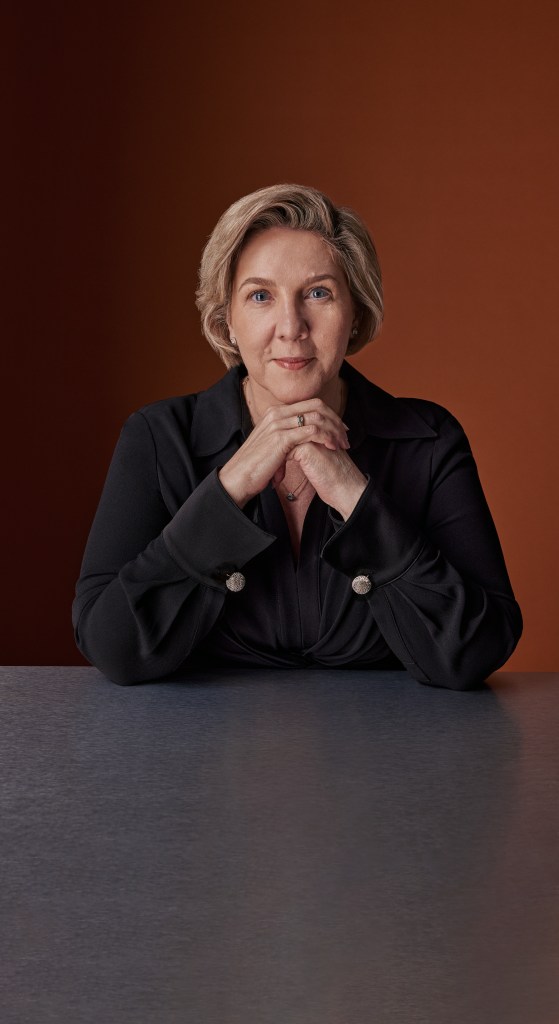
The board approached Denholm to fill the gap. She said no. She was in Australia and thought there’d be better people for the job. But the board came back and asked again. She could remain Australian-based, but she’d need to quit Telstra.
On making the decision, Denholm said: “I use this card exercise that’s out of the Centre For Creative Leadership, and I check in with myself to say: Do I really want to do this, but I’m scared? Or do I really want to do this, but there’s something preventing me from doing it? Or do I really not want to do this?”
She took the US$3-million-a-year job as the board negotiated a new pay deal with Musk.
‘I could walk away tomorrow’
That pay deal thrust Denholm into the spotlight in January 2024 when a Delaware judge, Kathaleen McCormick, said she had a “lackadaisical approach” to her duties. McCormick voided Musk’s package, which had grown with Tesla’s share price to the “unfathomable sum” of US$56 billion.
“That is crap,” Denholm told the Financial Times, responding to the use of “lackadaisical”. “I had to look up that word. Anybody who knows me knows I am not lackadaisical. It is probably the furthest from the truth. I am really intense and very diligent in what I do.”
Denholm also sits on the Safety Culture board, and founder Luke Anear treads carefully as he searches for the words to illustrate Denholm’s principles: “I can’t give you specifics, but, let’s say you had a dishonest customer, but it means a lot for you to keep that customer. Robyn will always err on the side of the ethical decision. What am I trying to say? This is not public knowledge – if someone’s dishonest – she won’t make any compromise. You must always maintain integrity when dealing with Robyn. It’s an efficiency. She doesn’t get tangled in grey areas.”

She told the FT that selling a tranche of her shares in Tesla had given her independence from it. “If I didn’t agree with something that was going on at the company, I could walk away tomorrow,” she said.
Defending Musk’s enormous payout, the largest in corporate history, Denholm said that when the bonus target was set, few people thought he could reach it. And if he failed to reach it, he got nothing. “Put yourself in Elon’s shoes. You’ve worked incredibly hard over six years to lead the company through transformative growth. Nobody thought these goals were possible in 2018. I remember talking to shareholders, and they’d say, ‘Robyn, what are you going to do when he doesn’t hit the goals and he’s demotivated?’”
When Musk signed the contract, the company’s market cap was US$53 billion. It got as high as US$1 trillion before falling away sharply. [But had risen with Trump’s election win back to almost US$1 trillion at the time of going to press.]
Denholm maintained that she does push back against Musk “all the time”. “I’m not going to do it in public. That is the antithesis of good governance,” she told CNBC in June after reinstating Musk’s pay. “We’re making sure we get the best outcome for shareholders, but we’re doing it respectfully. Elon is a great asset to the company and the future of the company.”
She said she monitors his tweets. “It’s very interesting actually, the range and breadth of tweeting – but definitely if things he talks about that are not associated with Tesla, but are associated with politics or anything else, as a board aren’t comfortable with a point of view or have been misinterpreted or whatever, we’ll lean into that conversation, again, not in public because that’s not helpful to anybody. I’ll pick up the phone. The rest of the board will as well.”

She said all that before her CEO went deep on his bromance with now President-elect Donald Trump, who had shown nothing but disdain for electric vehicles and wanted to eliminate all of US President Joe Biden’s EV subsidies.
Musk gave almost $200 million to the Trump campaign, while Democrat voters were five times more likely to buy an electric car than Republicans, according to a poll. The fact that the CEO might be on the nose for the carmaker’s customers was reflected in its declining market share and volume. In the first eight months of this year, Tesla’s EV sales volume dropped 8.5% in the US – or 36,200 vehicles – compared to the same period last year. And that’s at a time when the total EV market grew 7.4%.
And Biden’s “clean air” credits contributed US$739 million to Tesla’s 3rd quarter revenues. Trump has said he’d be coming after those credits and going after China in a trade war when Tesla is dependent on its sales to China.
So, she must have been on the phone with Musk alot lately?
“I don’t know that I talked about politics when I spoke to CNBC, but what I probably said was, you know, if there are areas he strays into that the board needs to lean into, we do. I mean, we know what our responsibilities are as a board. I know what my responsibilities are as a chairman of the board, and that is to represent all of the company’s shareholders. So, I do have discussions with Elon on a wide range of topics.
“From my perspective, every CEO, every founder is entitled to their own opinion on things. I mean, we’re all human beings, we all have an opinion. He happens to have a little bit larger megaphone than most, given his involvement with X, but from my perspective, he’s entitled to his opinion as to who he votes for, and I’m entitled to my opinion as to who I vote for.”
What about the risk he poses to the company, alienating all those customers?
“Or attracting a whole bunch of new ones,” she counters.
Tesla sales volumes did pick up in the second half of the year, then Tesla share prices soared after Donald Trump won the presidential election and mentioned Musk fondly in his speech claiming victory. At the time of going to press, Donald Trump announced that Elon Musk, alongside pharmaceutical entrepreneur Vivek Rawaswamy, would lead a newly-created Department of Government Efficiency (DOGE).
“I think we have a different point of view in Australia about what the role of a CEO and a founder is,” Denholm says.
Jumping through hoops
When the Denholms decided they did want to create a family office, they worked out their three pillars: climate, diversity and community.
Their Wollemi Capital Group has, for example, now invested in drone technology for female indigenous rangers to monitor conservation efforts on the Great Barrier Reef. Matt and Victoria were talking about what might fit under the community banner. They kept coming back to basketball. It was their family’s thing. “How do we invest in basketball?”

Robyn Denholm got onto LinkedIn and cold messaged the majority owner of the Sydney Kings and Sydney Flames, Paul Smith. Before they knew it, they were meeting him Smith and basketball legend and minority shareholder Andrew Bogut. By March 2022, the Denholms were minority owners of the Flames and the Kings. A month later, the Kings won the NBL championship in 17 years. “Everyone was telling us not to get used to it. You don’t win a championship all the time.” But the Kings backed it up with another in 2023.
As the Denholms got to know basketball, they looked to expand their role. In March, they took majority ownership of Hoops Capital, Paul Smith’s company that owned the Kings and the Flames.
But the women’s game was failing financially. According to News Corp, WNBL franchises had annual losses totalling $5 million. Basketball Australia was looking for investors in the women’s competition and asked for letters of intent.
The Denholms were already heavily invested in basketball. Did they want to go deeper? Victoria, now CEO of Wollemi Capital, styles herself as the most risk-averse in their family. “But Mom is used to taking risks and big risks. She asked: ‘If we don’t do this, can you live with that if someone else invests in it and it goes horribly and the league doesn’t exist any more?’”
Wollemi Capital Group ended up teaming with Kestelman’s NBL to form a consortium to buy the WNBL from Basketball Australia, taking effect at the end of the current season on April 2, 2025.
More from Forbes Australia
